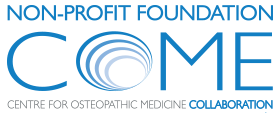Osteopathic Care as (En)active Inference: A Theoretical Framework for Developing an Integrative Hypothesis in Osteopathy
Osteopathy is a person-centred healthcare discipline that emphasizes the body’s structure-function interrelationship—and its self-regulatory mechanisms—to inform a whole-person approach to health and wellbeing. This paper aims to provide a theoretical framework for developing an integrative hypothesis in osteopathy, which is based on the enactivist and active inference accounts. We propose that osteopathic care can be reconceptualised under (En)active inference as a unifying framework. Active inference suggests that action-perception cycles operate to minimize uncertainty and optimize an individual’s internal model of the lived world and, crucially, the consequences of their behaviour. We argue that (En)active inference offers an integrative framework for osteopathy, which can evince the mechanisms underlying dyadic and triadic (e.g., in paediatric care) exchanges and osteopathic care outcomes. We propose that this theoretical framework can underpin osteopathic care across the lifespan, from preterm infants to the elderly and those with persistent pain and other physical symptoms. In situations of chronicity, as an ecological niche, the patient-practitioner dyad provides the osteopath and the patient with a set of affordances, i.e., possibilities for action provided by the environment, that through shared intentionally, can promote adaptations and restoration of productive agency. Through a dyadic therapeutic relationship, as they engage with their ecological niche’s affordances—a structured set of affordances shared by agents—osteopath and patient actively construct a shared sense-making narrative and realise a shared generative model of their relation to the niche. In general, touch plays a critical role in developing a robust therapeutic alliance, mental state alignment, and biobehavioural synchrony between patient and practitioner. However, its role is particularly crucial in the fields of neonatology and paediatrics, where it becomes central in regulating allostasis and restoring homeostasis. We argue that from an active inference standpoint, the dyadic shared ecological niche underwrites a robust therapeutic alliance, which is crucial to the effectiveness of osteopathic care. Considerations and implications of this model—to clinical practice and research, both within- and outside osteopathy—are critically discussed … MORE







